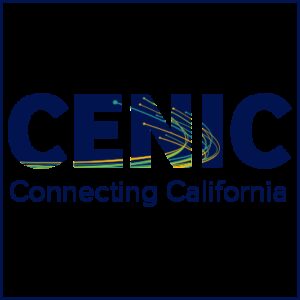- About
- Network
- Community
- Initiatives
- News
- Events
- Blog
- Publications

Energy Sciences Network 100-Gigabit SDN Testbed Awarded CENIC’s 2015 Innovations In Networking Award for High-Performance Research
Categories CCCs
Tags 100gigabit award esnet research sdn
The Department of Energy’s Energy Sciences Network (ESnet) is being honored by the Corporation for Education Network Initiatives in California (CENIC) as a recipient of the 2015 Innovations in Networking Award for High-Performance Research Applications for their 100-Gigabit Software-Defined Networking (100G SDN) Testbed.
The ESnet 100G SDN Testbed provides network researchers with a realistic environment for testing 100G application/middleware experiments. It also supports several 10G paths for SDN experiments, and will be significantly enhanced this summer with new OpenFlow v1.3 hardware.
100-Gigabit per second (Gbps) networking is fast becoming the new standard for advanced networks like CENIC’s California Research & Education Network (CalREN), following the lead of ESnet, and a necessity for the kind of data-intensive collaborative research that networks like CalREN and ESnet support for their communities. With the advent of software-defined networking, these ultra-high-performance networks can become even more responsive and powerful, ultimately becoming not just means by which scientific instruments are accessed and connected but in the words of ESnet Director Greg Bell, “scientific instruments for discovery in and of themselves.”
ESnet is a remarkable network and organization and their many contributions over the years – the On-Demand Secure Circuits and Advance Reservation System, perfSONAR, the Fasterdata Knowledge Base, the Science DMZ, to name but a few – have been major contributions to research communities around the world, and to research and education networks like CENIC.
“ESnet inspires us to do more for our communities and to be better at what we do. The ESnet team is remarkably talented and working with them is a joy and an honor,” stated Louis Fox, President & CEO of CENIC. “I cannot imagine better collaborators to pursue our common work of providing the research community with the most advanced and robust network infrastructure available – what ESnet Director Greg Bell and his colleagues call a dynamic scientific instrument – to support the innovation and discovery missions of our community.”
The 100G SDN Testbed provides researchers with a rapidly reconfigurable high-performance network research environment that will accelerate the development and deployment of 100G networking through prototyping, testing, and validation of advanced networking concepts, as well as providing a stable environment for interoperability tests, prototyping, and more. Furthermore, it frees network researchers from the need to obtain funding to build their own network testbeds or use a laboratory environment to prove the viability of their innovative ideas. More information on this and other projects can be found online at www.es.net.
Innovations in Networking Awards are presented each year by CENIC to highlight the exemplary innovations that leverage ultra high-bandwidth networking, particularly where those innovations have the potential to revolutionize the ways in which instruction and research are conducted or where they further the deployment in underserved areas.
About ESnet • www.es.net
The Energy Sciences Network (ESnet) is a high-performance, unclassified network built to support scientific research. Funded by the U.S. Department of Energy’s Office of Science (SC) and managed by Lawrence Berkeley National Laboratory, ESnet provides services to more than 40 DOE research sites, including the entire National Laboratory system, its supercomputing facilities, and its major scientific instruments. ESnet also connects to 140 research and commercial networks, permitting DOE-funded scientists to productively collaborate with partners around the world.
Related blog posts
CENIC and San Diego Supercomputer Center Create Sustainable Agriculture for California’s Future
CENIC’s networking and services, including CENIC AIR, can be a vital part of preparing new generations of farmers that will apply the latest technology to agriculture by turning the farm into an educational setting and improving the efficiency of farming as a career.
Advancing AI for California’s Community Colleges through Collaboration Across the CENIC Membership
It’s been eight months since the San Diego Community College District connected to CENIC AIR—and CENIC membership was essential at every step of the way.


